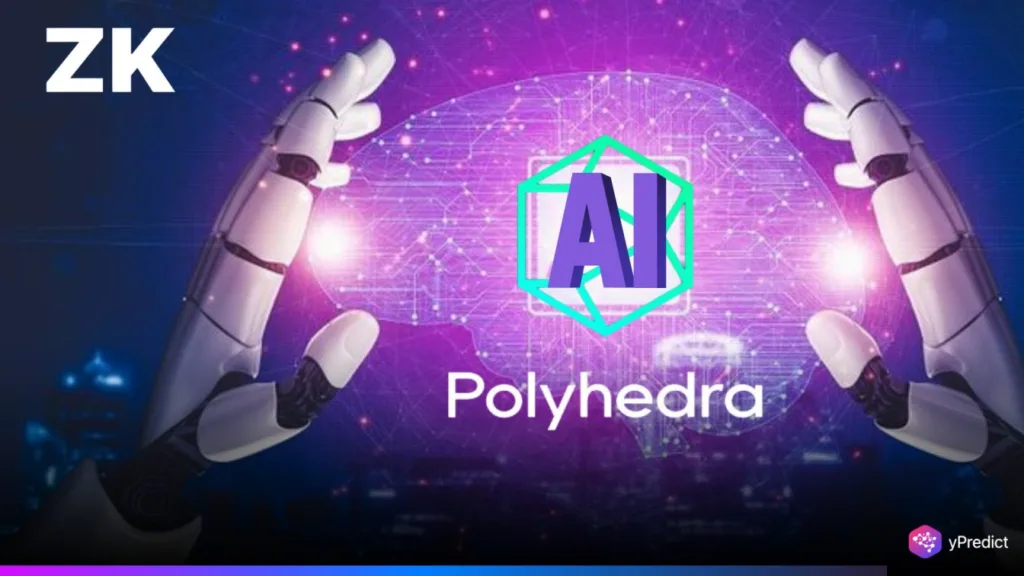
As AI systems advance and become more integrated in everyday life, issues of trust, privacy, and accountability are on the rise. The concerns assume an even greater sense of urgency in the blockchain space. Can outcomes be validated without eavesdropping on sensitive data? That is the issue the Polyhedra co-founder is tackling by creating a ZK Proofs or zero-knowledge (ZK) trust layer for both AI and Web3.
Founded by researchers from UC Berkeley, Stanford, and Tsinghua University, Polyhedra is interested in taking sophisticated cryptographic research and developing it into a useful and scalable infrastructure. Their tools enable developers to confirm AI model outputs and blockchain transactions while hiding the data behind them. It’s a dream that is picking up momentum as there is a need for secure and transparent systems.
The Case for a ZK Proofs Trust Layer
At its core, Polyhedra builds infrastructure that enables trust without central authority. That starts with tools like zkPyTorch, a developer-friendly integration for adding ZK proofs to machine learning models, and Expander, a high-speed ZK prover that dramatically improves proof generation. Together, these systems allow developers to show that an AI model made a correct decision, without ever exposing the data behind it. According to Xie, “As AI and blockchain evolve, we need ways to prove things are working correctly, without sacrificing privacy.” This is especially important in healthcare or finance, where trust is critical and data is sensitive. With ZK proofs, machine learning models can offer proof of accurate outcomes without disclosing inputs or parameters.
Scaling Privacy and Training the Builders
Beyond the technology, Polyhedra is also focused on growing the next generation of engineers who will build ZK-powered systems. Through its Explore Expander Bootcamp, launched with partners like the Ethereum Foundation, Worldcoin, and Google, Polyhedra is actively teaching the fundamentals of zkML (zero-knowledge machine learning). The bootcamp blends hands-on training, mentorship, and real-world projects, helping developers learn skills like PyTorch, zkPyTorch, and how to work with ZK provers like Expander. This effort is a key part of Polyhedra’s long-term strategy. “Tomorrow’s engineers will need to understand both cryptography and machine learning,” Xie explained. “That combination is what powers the future of trust.”
Achievements and Real-World Adoption
While building new infrastructure is always challenging, Polyhedra co-founder’s approach is already showing results. ZkBridge now facilitates millions of cross-chain transactions. Expander has dramatically improved zkML performance. And with the rollout of EXPchain, Polyhedra is creating a dedicated environment for privacy-first AI development. One of the biggest hurdles has been developer accessibility; ZK systems are complex. But with zkPyTorch and educational initiatives, the company is lowering the barrier to entry for builders.
A Balanced Future of Privacy and Transparency
ZKPs offer a unique blend of transparency and confidentiality. As Xie explained, users can prove something is true, like having enough funds for a transaction, without revealing personal details. This ability to verify without exposure is the foundation of Polyhedra’s “trust layer” for the internet.
If Polyhedra co-founder succeeds, AI applications could offer verifiable predictions without leaking data, while blockchains enable secure, trustless asset transfers across networks. “Our mission,” Xie said, “is to make that future real, where privacy and trust can finally coexist.” As adoption grows and AI news focuses more on data responsibility, Polyhedra is quietly leading the way, building the tools, training the talent, and shaping the trust infrastructure AI and Web3 will rely on.






